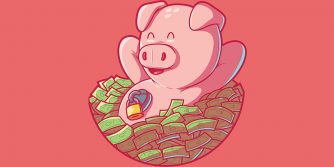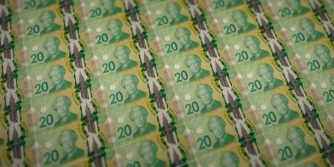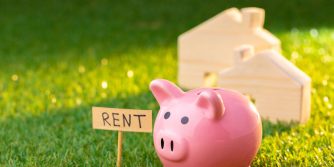There are a few investing concepts that I want to talk about in this article, they are Investment Capital, Debt, and Income. These three concepts frame everything about your investment strategy and changes in one of these can dramatically affect the others.
Investment Capital

I define Capital as the money that you have invested in any particular investment, property, stock, or business. It could be anything you have purchased that makes you some kind of Income. This could be a rental property, it could be an investment in the stock market or a business that you purchase. The key is, it should be making you a regular, somewhat reliable income.
If you own your own home, taking out something like a Home Equity Line of Credit on your house and using that cash as Capital to fund another investment is in some circumstances an excellent source of Capital. However, you should only do this if you are in an area with a relatively stable housing market, and you have a good income to support your mortgage should the floor of your investments fall out from underneath you. There are a few really scary scenarios where you could end up losing your house to the bank if you are too heavily leveraged and your financial circumstance changes. I have heard stories of people who were heavy into their house, and ended up selling it when they lost their job, and owed the bank money after the sale since the value of the house has dropped drastically since they borrowed against it.
Investment Debt

This brings me to my next concept, Investment Debt. Investment Debt is any financing instrument that you use to purchase your investment. This could be a mortgage on a rental property, or it could be a small business loan you needed to buy your business or even borrowing on margin to fund a hot stock tip your friend told you about.
Including Investment Debt in your portfolio is totally normal, and as long as your debt is serviceable, ie: you can pay off the monthly payments easily with the income from your investments, or other sources, then there shouldn’t be a problem. However, you want to make sure you are being smart, and do your math when engaging in any amount of financing. In fact, do it twice.
When considering going into debt for an investment you want to make, be sure your goals are clear, and your available resources are accounted for. It may not make much sense for a young entrepreneur with a low income to go into debt or take a subprime mortgage on a rental property. Leveraging themselves so heavily for so little rent, after considering all the other costs associated with owning property might be a poor use of their time and money.
However, that same entrepreneur may have plenty of time and some skills to invest as sweat equity into an aging home that requires significant renovations. If they are able to properly renovate an older house, they may make significant money on a flip should the right purchase and sale be made.
Debt can also be a short-term solution, and only be a factor for a few months or a year. When I bought one of my first online businesses, I included an earnout of approximately 25% of the purchase price. This means that I paid the seller about 75% of the purchase price upfront, and then the remainder I paid over the course of a few months. Now, in this case, I was able to offer an earnout of about $7,500 per month, which was more than the business made, so I had to make sure that we had the cash flow from our other investments to cover this short-term debt.
I’ll admit that it was a pretty aggressive payment schedule, and it very nearly caused me some sleepless nights. Especially when the business we purchased declined slightly in revenue shortly after we purchased it while we learned the business and got caught up with best practices and all of the standard operating procedures. Even this slight decline in income meant that the earnout put a strain on our finances. We had to make up now for a declining revenue stream on a business that we had budgeted for a huge earnout on.
Now, it all worked out and we didn’t even up having to refinance anything or go back to the seller and re-negotiate, but it proved that even the best thought out plan really doesn’t ever survive contact with the enemy. It does show the power of diversification, though. We had enough revenue from other sources that the decline in one business was not sufficient to cause any real problems.
Investment Income

That brings us to the fun part! Income.
Whatever your investment is, you should be making some income from it. If you are invested in the stock market, maybe you have a dividend that you take as income. If you run your own business, then the investment income may be the profit that the business makes above and beyond your expenses.
What to do with that income is a bit trickier than defining it, however. As we said, everyone needs to earn money, and we all have bills to pay. You need to make enough income from your investments to give yourself as an entrepreneur, investor, or landlord a decent wage as well as cover your personal expenses.
Of course, these requirements will vary wildly for different people, but the goal of being self-sufficient on investment income alone should always be in the back of your mind.
If you are lucky enough to have an investment income that surpasses your personal expenses, then you have some decisions to make. What to do with this additional money? You could take it as personal income, and pay your taxes and enjoy it! Flipped a house for a really nice profit? Bought yourself a new car afterward? That’s awesome. I’m not one to judge anyone by what they spend their investment income on.
However, the rule that I have for my portfolio is simple:
We don’t ever dilute our investment capital. Ever.
What do I mean by this? You should only ever be spending investment income. Never spend your investment capital. This might be easy for an investor who lives off a passive dividend income, as selling some of his stock portfolio would reduce his dividends, and that connection between capital and income becomes glaringly obvious.
It’s a bit harder for the property or business flipper who sells a juicy asset and then makes the decision to spend $50,000 of the $200,000 he just made by buying a new car. This decision to spend a chunk of the profits from the sale of their asset may seem reasonable, after all, who doesn’t like to celebrate? The connection between your investment capital and your investment income may be blurry in a situation like this.
This is where patience and self-control come into effect. That new car purchase just set your next investment potential back by 25%. Instead of being able to invest the entire $200,000 now on a new venture, or another property, you now only have $150,000. For example one of my businesses around that $150,000 price range makes about $4,000 a month. That’s an extra 13 months of operating for the price of that new car. That’s a lot of time. $50,000 on a house flip could be the entire profit on a $400,000 investment, as well as months of work.
In short, diluting your investment capital is just a terrible idea. It sets you back so far, it’s almost never worth it. There are some instances where dipping into your capital is necessary, but I haven’t come across many instances that didn’t make my stomach hurt thinking about it.
If you have a good portfolio of assets, and you don’t own your own home, and getting a mortgage is difficult because you invest full-time and the banks don’t seem to shower you with mortgage approvals, then maybe removing some of your investment capital to shore up your finances with the bank in the service of buying your own home could be worth it.
Treat your investment capital like a golden goose. The return on investment for the many different things you could engage in is relatively wide. So, depending on what you are investing in, larger capital availability could mean significant returns for the same amount of time and effort.







